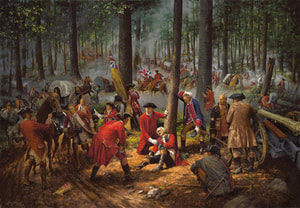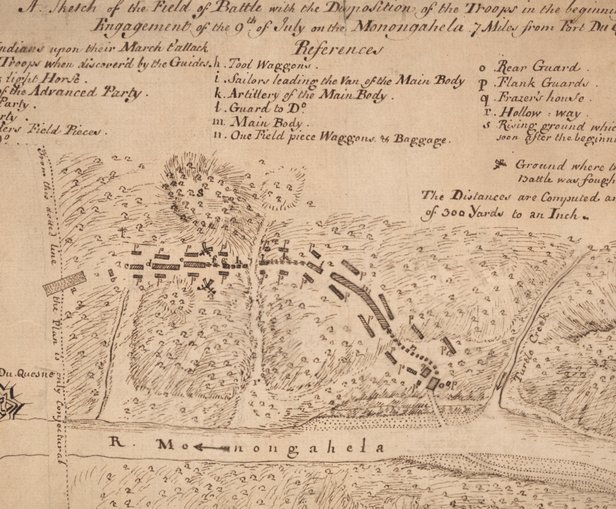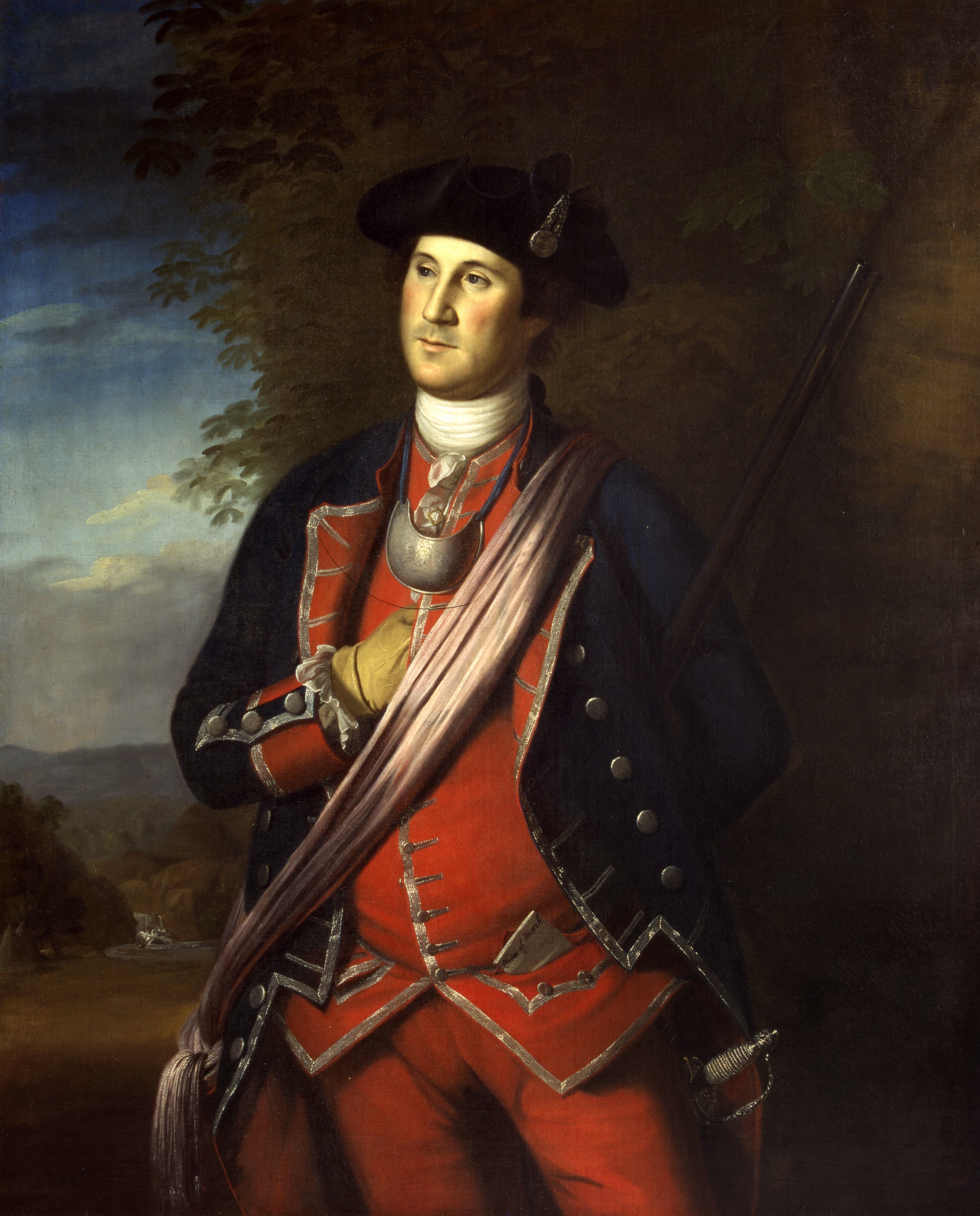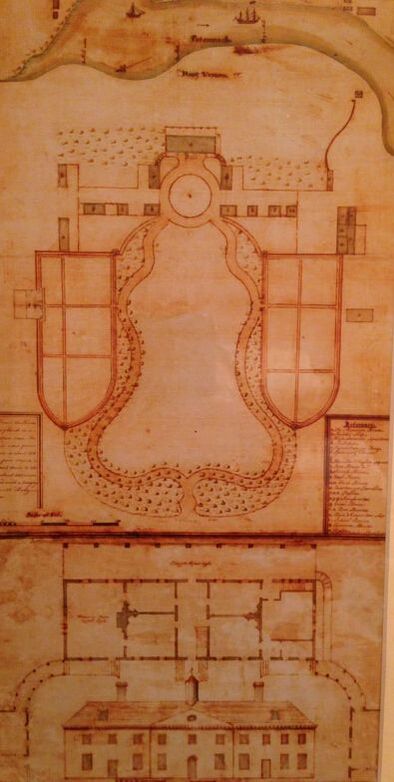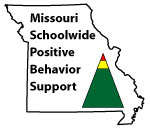Art Appreciation
Observe the artwork here.
|
Music Appreciation |
GEORGE WASHINGTON WAS UNBREAKABLE
|
There is no less incredible account of the making of George Washington than his experiences in the following year. In 1755, Washington soldiered on in the French and Indian War (in England known as the Seven Years War), now under the leadership of Major General Edward Braddock.
Washington, now a colonel, became sick and chose to remain on the side of the trail for some time before rejoining the unit. Once he did, British Forces were confronted by the enemy in what is now known by many names: the Battle of Monongahela, Battle of the Wilderness, and the Battle of Braddock's Field. This last title assigned due to the events of the day. |
The film features reenacted scenes from the Battle of Monongahela, in which Colonel Washington must take over for the injured Braddock. Washington leaps into a commanding role, in spite of the shots that ring out all around him. Watch it and read Mount Vernon's account of the battle for yourself and be amazed at how close he came to being killed himself.
GEORGE WASHINGTON WAS SENTIMENTAL
|
As indicated, the sash was given to George Washington when Braddock died. Today it is in the Mount Vernon artifact collection.
Even later, when Washington posed for a portrait, he insisted on wearing the sash of his former commanding officer in tribute. What do you notice about the portrait (left)? What do you wonder? What are some reasons he felt compelled to wear Braddock's sash for his portrait? Are there items in your own possession that remind you of loved or respected ones who are no longer in your life? If so, are those items special to you? Why are they special? Write about one, including a description of your reasons. |
GEORGE WASHINGTON DID NOT SIT IDLE
|
In the 16 years between the French and Indian War and the Revolutionary War, George took some time to regroup, with his beloved wife Martha, at Mount Vernon. He must have always been thinking of improving - on his plantation and mansion, as well as on the new nation that was about to form.
During this time, he experimented with crop rotation and composting. He ran a fishing operation on the Potomac River. He wrote letters to friends and acquaintances. He served in government posts. He formed opinions about slavery. In short, George kept himself busy in that interim, enjoying life at Mount Vernon and spending time with his new family, which included Martha's two children from a previous marriage (She was a widow.). And then, duty would call once again, but this time for the Continental Army against the British regulars of whom he had been a part. |
